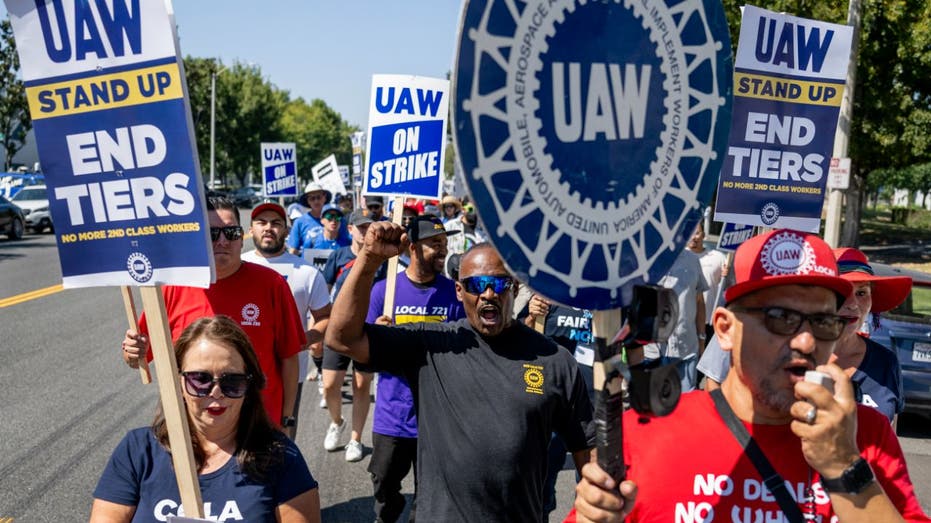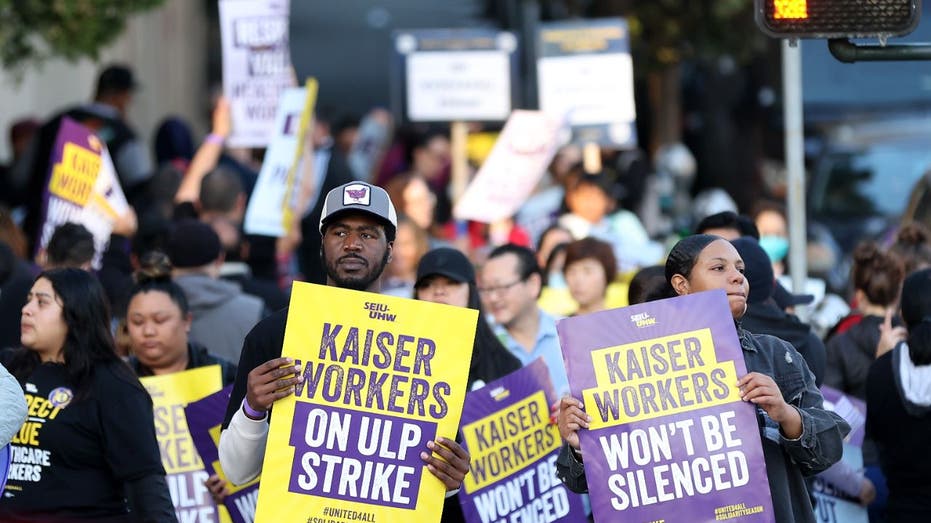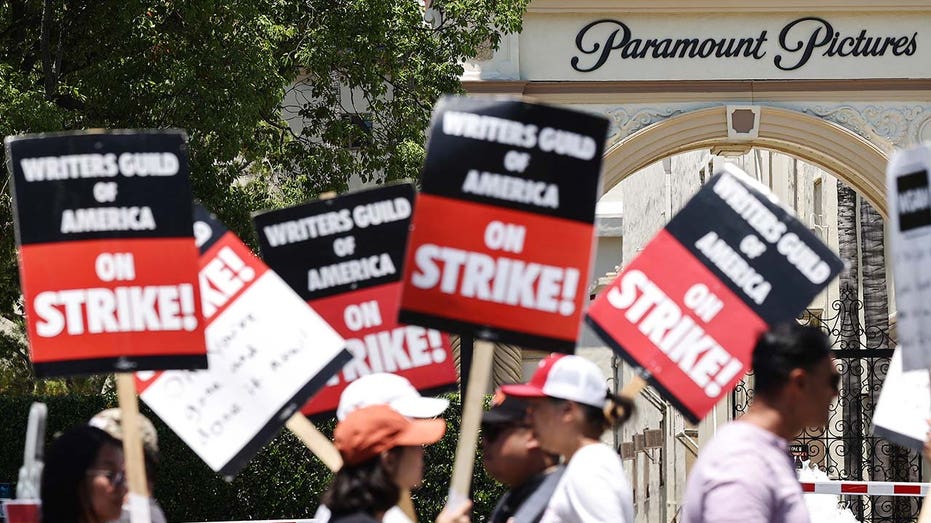Major US labor strikes hit 23-year high in 2023
The number of major strikes in 2023 was double the average over the past 20 years
There's a lot going on in the labor movement right now: Eugene Scalia
Former U.S. Labor Secretary Eugene Scalia discusses the tentative deals in the actors and UAW strikes and the impact of the union vote on ‘Cavuto: Coast to Coast.’
If it seemed like labor unions carried out more strikes in the U.S. in 2023 than usual, it's because they did.
The Labor Department's Bureau of Labor Statistics (BLS) on Wednesday reported that the number of major work stoppages across the nation hit 33 last year, double the average over the past 20 years and the highest since 2000, when there were 39.

Striking United Auto Workers march in front of the Stellantis Mopar facility in Ontario, California, on Sept. 26, 2023. (Gina Ferazzi / Los Angeles Times via Getty Images / Getty Images)
The agency defines major work stoppages as those that involve 1,000 or more workers and last at least one shift during the workweek Monday through Friday, excluding federal holidays. All told, more than 450,000 workers were involved in major work stoppages in 2023, BLS said.
TEAMSTERS TARGET BUD LIGHT PARENT ANHEUSER-BUSCH, MOLSON COORS
Several high-profile strikes made headlines throughout last year as workers walked off the job demanding higher pay and benefits.

Striking Kaiser Permanente workers hold signs as they march in front of the Kaiser Permanente San Francisco Medical Center in San Francisco on Oct. 4, 2023. (Justin Sullivan/Getty Images / Getty Images)
The United Auto Workers (UAW) launched a targeted but simultaneous strike against Ford, General Motors and Stellantis; the largest strike of health care workers in the history of the U.S. occurred in October when 75,000 Kaiser Permanente union employees took to the picket lines in a three-day strike that impacted hospitals across several states; and unionized actors and writers crippled Hollywood with work stoppages that extended for months.
| Ticker | Security | Last | Change | Change % |
|---|---|---|---|---|
| F | FORD MOTOR CO. | 13.80 | +0.08 | +0.58% |
| GM | GENERAL MOTORS CO. | 84.24 | +0.94 | +1.13% |
| STLA | STELLANTIS NV | 7.27 | -2.27 | -23.75% |

Striking Writers Guild of America workers picket outside Paramount Studios in Los Angeles on July 12, 2023. (Mario Tama/Getty Images / Getty Images)
Although unions carried out a flurry of strike activity and increased their membership roles in 2023, the percentage of organized workers in the U.S. hit a record low for the second year in a row.
Union leaders are seeking to reverse that trend.
GET FOX BUSINESS ON THE GO BY CLICKING HERE
Also on Wednesday, the UAW announced it is committing $40 million through 2026 to unionize more autoworkers and battery workers, aiming to capitalize on what they see as "growing organizing momentum across the non-union auto sector."





















